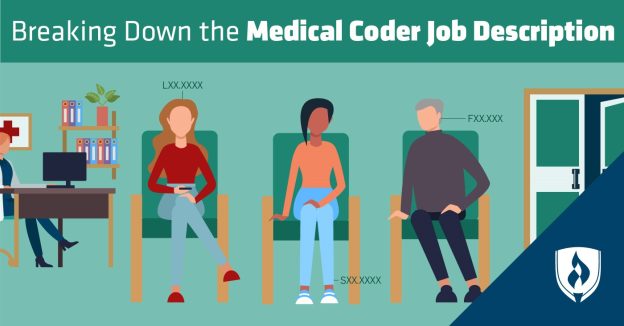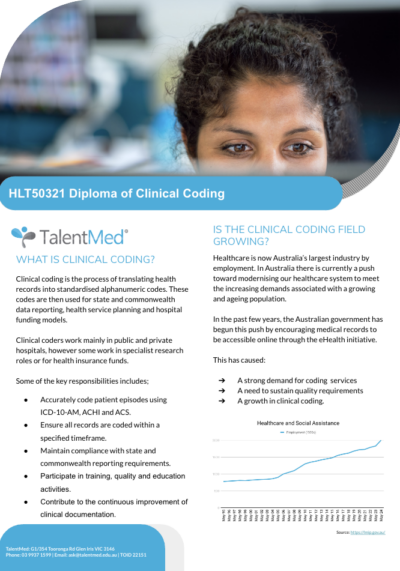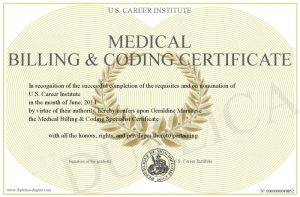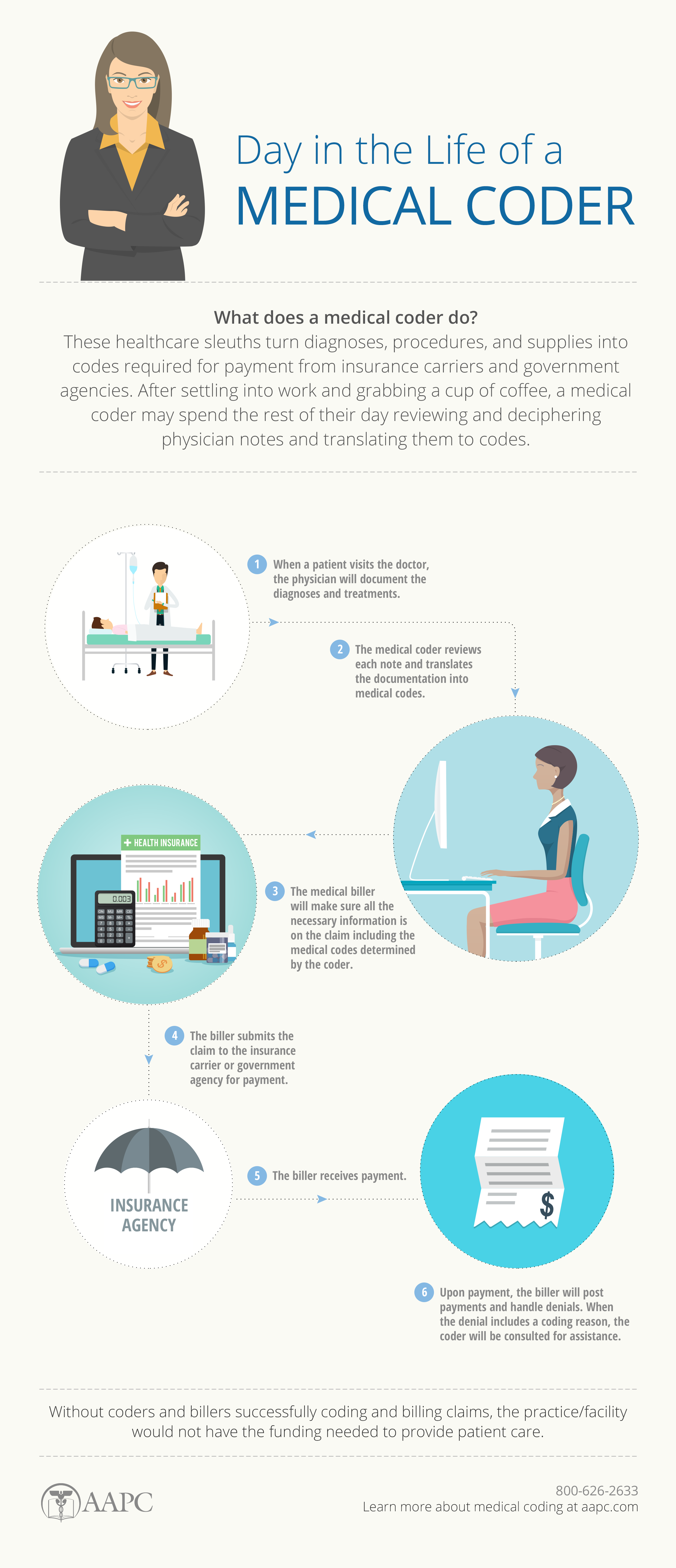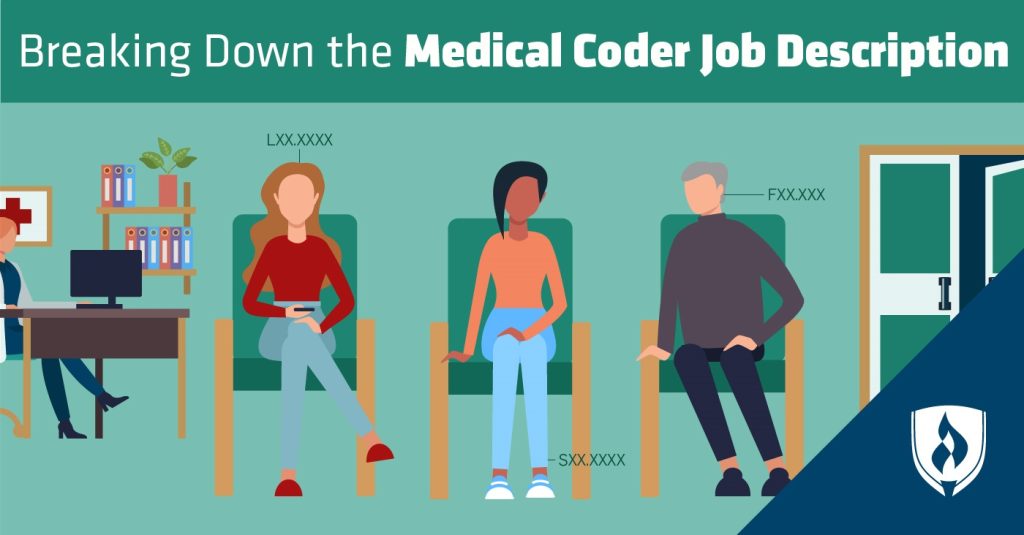To enter the field of medical coding, a specific skill set and knowledge base are essential. This article will explore the key requirements to become a successful medical coder. From acquiring a thorough understanding of medical terminology and anatomy to mastering coding systems such as ICD-10 and CPT, a comprehensive grasp of these foundational elements play a pivotal role in ensuring accurate and efficient medical coding. Additionally, attention to detail, strong analytical skills, and the ability to navigate complex healthcare documentation are crucial attributes that contribute to the success of a medical coder. By delving into the prerequisites of this profession, this article aims to equip aspiring individuals with the necessary insights to embark on a rewarding career in medical coding.
Education and Training
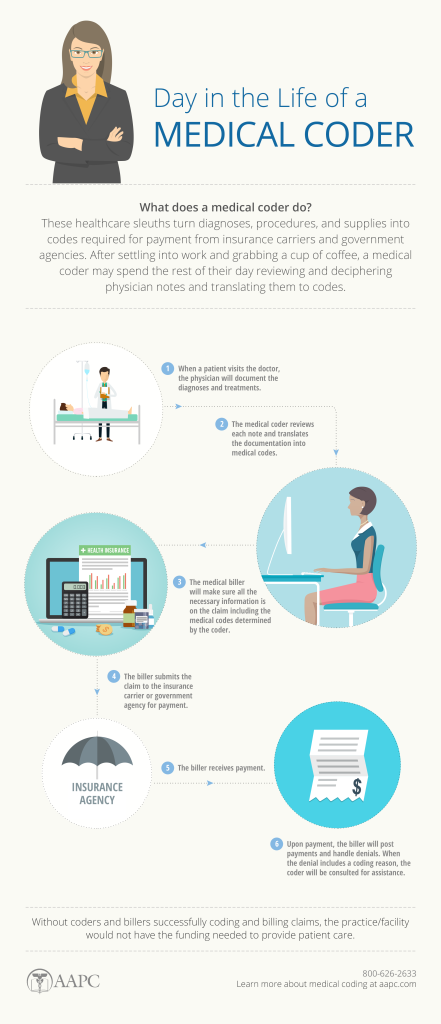
This image is property of cache.aapc.com.
High school diploma or GED
To pursue a career as a medical coder, a high school diploma or General Educational Development (GED) certificate is typically the minimum education requirement. This foundational level of education provides the necessary groundwork for further training and development in the healthcare field.
Medical coding certification
Obtaining a medical coding certification is essential for aspiring medical coders. There are several certification options available, such as the Certified Professional Coder (CPC) credential or the Certified Coding Specialist (CCS) designation. These certifications demonstrate your proficiency and knowledge in medical coding practices and increase your credibility within the industry.
Associate’s degree in medical coding or related field
While not always mandatory, earning an associate’s degree in medical coding or a related field can greatly enhance your career prospects. These programs offer specialized coursework in medical terminology, coding systems, reimbursement methods, and data analysis, providing you with a comprehensive understanding of the field. Moreover, an associate’s degree can help you stand out among other candidates during job applications.
Continuing education and professional development
Medical coding is a constantly evolving field, with regular updates to coding systems like ICD (International Classification of Diseases), CPT (Current Procedural Terminology), and HCPCS (Healthcare Common Procedure Coding System). To stay up-to-date with these changes and maintain your professional competence, it is crucial to engage in continuing education and professional development opportunities. This can include attending workshops, webinars, conferences, and participating in relevant industry associations.
Knowledge and Skills

Medical terminology
A strong understanding of medical terminology is vital for medical coders. This knowledge enables you to accurately interpret and assign the appropriate codes to diagnoses, procedures, and services provided by healthcare professionals.
Anatomy and physiology
Medical coders must possess a solid grasp of human anatomy and physiology. This understanding allows them to comprehend medical records, the interrelationships between different body systems, and accurately assign codes that reflect the specific conditions being treated.
Medical coding systems (ICD, CPT, HCPCS)
Proficiency in medical coding systems, such as ICD, CPT, and HCPCS, is a fundamental requirement for medical coders. These coding systems form the basis for accurately documenting and reporting medical information, ensuring proper billing and reimbursement.
Healthcare reimbursement methods
Understanding various healthcare reimbursement methods is essential for medical coders. This knowledge helps ensure that medical codes accurately correspond to the services provided, facilitating the reimbursement process and preventing any potential inaccuracies or discrepancies.
Data analysis and management
Medical coders must possess strong data analysis and management skills. They are responsible for reviewing medical records, extracting relevant information, and translating it into standardized codes. Additionally, medical coders are often required to analyze coding trends and patterns to identify improvement areas or potential coding errors.
Attention to detail
Attention to detail is a crucial skill for medical coders as they must meticulously review and analyze medical documentation. Even the slightest oversight or error in code assignment could result in incorrect billing, reimbursement issues, or potential compliance violations. By maintaining a keen eye for detail, medical coders can ensure accurate and error-free coding.
Critical thinking and problem-solving
Medical coding often involves complex scenarios that require critical thinking and problem-solving skills. Professionals in this field must analyze medical records, identify missing information, clarify any discrepancies, and make informed decisions regarding code assignment. Effective critical thinking abilities enable medical coders to navigate and overcome these challenges appropriately.
Computer skills
In today’s digital age, medical coders must possess strong computer skills. They need to be proficient in using various software programs, electronic health record (EHR) systems, and data management tools. An aptitude for technology allows medical coders to efficiently navigate coding systems, access patient information, and accurately document coding processes.
Experience

Entry-level positions
Entry-level positions provide valuable hands-on experience for aspiring medical coders. These roles typically involve working under the supervision of experienced professionals and performing coding tasks with increasing complexity as skills develop. Entry-level positions may include positions like medical coding assistants or coding clerks.
Internships or apprenticeships
Internships or apprenticeships offer the opportunity to gain practical experience in a real-world healthcare setting. These programs allow aspiring medical coders to work alongside experienced professionals, learn from their expertise, and apply classroom knowledge to real-life scenarios. Internships and apprenticeships often serve as a valuable bridge between training and employment.
On-the-job training
Many healthcare facilities and organizations provide on-the-job training for newly hired medical coders. This training allows individuals to become familiar with specific coding systems, processes, and regulations utilized within the organization. On-the-job training can provide practical guidance and mentorship during the initial stages of a medical coding career.
Certification
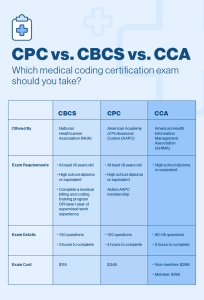
Certified Professional Coder (CPC)
The Certified Professional Coder (CPC) credential is one of the most recognized and respected certifications in the field of medical coding. Offered by the American Academy of Professional Coders (AAPC), this certification validates medical coding proficiency across various settings and specialties. To obtain this certification, individuals must pass a rigorous examination.
Certified Coding Specialist (CCS)
The Certified Coding Specialist (CCS) certification is offered by the American Health Information Management Association (AHIMA). This certification focuses on inpatient and hospital-based coding and demonstrates expertise in assigning codes for medical procedures, diagnoses, and services. Earning the CCS certification showcases a higher level of coding knowledge and proficiency.
Job Outlook

Growing demand for medical coders
The demand for skilled medical coders is projected to continue to rise in the coming years. As the healthcare industry expands and advances, there is an increasing need for professionals who can accurately translate medical diagnoses and procedures into standardized codes. This growing demand presents promising career opportunities for individuals pursuing a career in medical coding.
Opportunities in various healthcare settings
Medical coders are needed in a wide range of healthcare settings, including hospitals, clinics, physician offices, nursing homes, and insurance companies. This diversity of employment opportunities allows medical coders to choose a work environment that aligns with their preferences and professional goals.
Telecommuting options
One of the advantages of a career in medical coding is the increasing availability of remote work or telecommuting options. With advancements in technology and the widespread implementation of electronic health records (EHRs), medical coders can often perform their duties remotely. This flexibility offers improved work-life balance and the opportunity to work from the comfort of your own home.
Ethics and Compliance

Adherence to coding guidelines and regulations
Medical coders must adhere to various coding guidelines and regulations established by organizations such as the Centers for Medicare and Medicaid Services (CMS), the World Health Organization (WHO), and other governing bodies. Compliance with these guidelines ensures accurate and ethical coding practices, mitigates audit risks, and maintains the integrity of healthcare data.
Confidentiality and privacy
Medical coders handle sensitive patient medical information and must adhere to strict confidentiality and privacy regulations outlined by laws such as the Health Insurance Portability and Accountability Act (HIPAA). Respecting patient privacy is paramount, and medical coders must ensure that patient information remains secure throughout the coding process.
Ethical coding practices
Medical coders are entrusted with accurately assigning codes that reflect the services provided by healthcare professionals. They must display ethical coding practices by assigning codes to the best of their knowledge and based solely on the information available in the medical record. Integrity, honesty, and accountability are key principles that medical coders must uphold in their day-to-day work.
Communication

Effective written and verbal communication
Clear and concise communication is essential for medical coders to effectively collaborate with healthcare professionals. Medical coders may need to seek clarification on medical documentation, provide education on coding practices, or relay coding-related information to various stakeholders. Strong written and verbal communication skills ensure accurate information exchange and facilitate efficient workflow.
Collaboration with healthcare professionals
Medical coders work closely with healthcare professionals, including physicians, nurses, and other members of the healthcare team. Collaboration with these professionals helps clarify coding requirements, validate information, and ensure accurate coding assignments. Effective collaboration fosters a cooperative work environment and contributes to quality patient care.
Patient interaction
Although medical coders may not have direct patient contact, they play a crucial role in the healthcare process. Accurately coded medical records enable insurance providers to process claims promptly, ensuring patient coverage for necessary treatments. Medical coders indirectly impact patient care by ensuring proper reimbursement and facilitating efficient healthcare operations.
Analytical Skills

Problem-solving and decision-making
Medical coders often encounter complex scenarios that require problem-solving skills and the ability to make informed decisions. They must analyze medical records, identify missing or contradictory information, and apply coding guidelines to accurately assign codes. Effective problem-solving and decision-making capabilities ensure accurate coding, minimize errors, and maintain compliance with regulations.
Critical thinking
Critical thinking is an essential skill for medical coders as it enables them to analyze medical records, identify inconsistencies, and make connections between diagnoses, procedures, and services provided. Strong critical thinking skills contribute to accurate code assignment and enhance the overall quality of medical coding.
Attention to detail
Medical coders must possess exceptional attention to detail in order to accurately review and interpret medical records. Understanding the nuances within medical documentation ensures the appropriate assignment of codes, preventing errors that could result in improper billing or reimbursement. Attention to detail is vital for maintaining coding accuracy and compliance.
Software and Tools
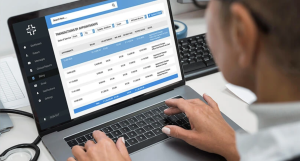
Electronic health record (EHR) systems
Medical coders rely heavily on electronic health record (EHR) systems to access patient information, review medical records, and assign codes. Familiarity and proficiency with EHR systems are essential for efficient coding processes and accurate medical documentation.
Medical coding software
Medical coding software programs are specifically designed to facilitate the coding process, streamline workflows, and ensure coding accuracy. These software tools often include features like coding suggestion prompts, code validation checks, and coding reference resources. Proficiency in medical coding software enhances productivity and helps medical coders stay up-to-date with coding changes.
Data management tools
As medical coders work with large volumes of data, the utilization of data management tools is crucial. These tools help organize and manipulate vast amounts of information, ensuring efficient data analysis, extraction, and reporting. Familiarity with data management tools allows medical coders to streamline their work processes and navigate complex datasets effectively.
Career Advancement

Specialization in specific medical fields
Medical coders have the opportunity to specialize in specific medical fields to increase their expertise and marketability. By focusing on a particular specialty, such as cardiology or orthopedics, medical coders can further hone their coding skills in a specific area. This specialization can lead to higher-paying positions and expanded career opportunities.
Management or supervisory roles
Experienced medical coders may progress into management or supervisory roles within healthcare organizations. These roles involve overseeing coding operations, training and mentoring new coders, ensuring compliance with coding guidelines, and managing coding-related projects. Management positions offer increased responsibility and the opportunity to contribute to the strategic direction of coding departments.
Becoming an auditor or consultant
As medical coders gain experience and in-depth knowledge of coding practices and regulations, they may choose to pursue roles as auditors or consultants. Auditors review coded medical records to identify coding errors, ensure compliance, and provide feedback for improvement. Consultants offer their expertise to healthcare organizations, assisting them in optimizing coding processes, improving coding accuracy, and ensuring compliance with industry standards.
In conclusion, a career in medical coding requires a solid educational foundation, professional certifications, and a diverse skill set encompassing medical terminology, coding systems, analytical abilities, and effective communication. Through continuing education and gaining practical experience, medical coders can lay the groundwork for a successful and rewarding career in the dynamic field of healthcare coding. With a growing demand for skilled professionals and a variety of career advancement opportunities, medical coding offers a secure and promising path for individuals passionate about healthcare and data management.
